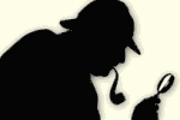


ChessBase 17 - Megapaket - Edition 2024
ChessBase ist die persönliche Schach-Datenbank, die weltweit zum Standard geworden ist. Und zwar für alle, die Spaß am Schach haben und auch in Zukunft erfolgreich mitspielen wollen. Das gilt für den Weltmeister ebenso wie für den Vereinsspieler oder den Schachfreund von nebenan
Edward Winter presents: Unsolved Chess Mysteries (19)
18.11.2007 – A further selection from
Chess Notes
focuses on games and positions. Why is it claimed that Rubinstein played
an ending that repeated a nineteenth-century composition? Did Chigorin
remove one of his own pieces from the board in an endgame against
Tarrasch? And what about the game which Fahrni purportedly won by moving
his remaining pawn backwards?
Join in the hunt for clues.